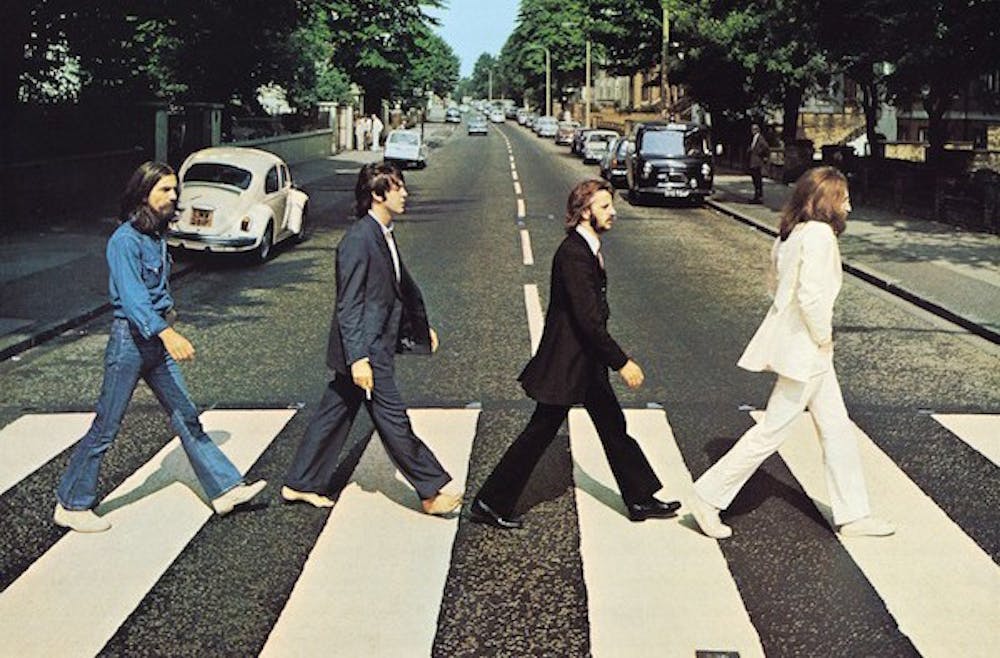Maybe it’s time we stop ranking stuff.
Rolling Stone’s updated list, which came out Sept. 22, of the 500 greatest albums of all time is just angering. The list ranks what Rolling Stone considers to be the best albums ever made. Their original list came out in 2003, and a slightly updated version came out in 2012.
It felt like the people who put the list together just wanted to make readers mad. And they admitted to that in the introduction to the list.
“Over the years, it’s been the most widely read — and argued over — feature in the history of the magazine,” Rolling Stone said in an article.
So, yeah. If they wanted readers to argue, they sure got that. But maybe not for the reasons they think.
No coherent arguments can be made about where each album ranks when the people who put together the list can't explain it themselves.
The descriptions that Rolling Stone cobbled together were half-assed at best. While they managed to describe the essence and importance of each album listed, they missed a major detail: Why did some albums move up, and why did some albums move down – or completely off the list?
For example, the Beatles’ “Sgt. Pepper’s Lonely Hearts Club Band'' was listed in Rolling Stone’s inaugural greatest albums list in 2003 and the 2012 slightly-updated issue as the greatest album of all time.
Flash forward to 2020, and the album once described as "an unsurpassed adventure in concept, sound, songwriting, cover art and studio technology by the greatest rock & roll band of all time,” has been moved to number 24.
But why?
The title of greatest album now belongs to Marvin Gaye’s “What’s Goin’ On,” which initially came in at number six. Reasonable jump, right? Perhaps, yeah — it definitely seems plausible that an album that was already in the top 10 could move to the number one spot.
That’s not what I have a problem with.
I have a problem with what I mentioned before – the fact Rolling Stone left out some of the key elements of journalism: why and how something happened.
Why, in 2020, is Nirvana’s “Nevermind” the sixth best album of all time, up from number 17? How, in 2020, did Rolling Stone make the decision to say “Abbey Road” was the Beatles’ best album? These are just a couple examples that lead to the ultimate question: What went into the process?
I ask all these questions because Rolling Stone doesn’t make any arguments for the placements of these albums. They praise each individual album on the list in an equal sense. No one album seems more revolutionary, more complete and any better than another.
Ultimately, I’m saying this is an incomplete journalistic endeavor – the list doesn’t feel thoughtful. I need more information as to why each album ended up at number 392 or 56 or 85.
I'd also like to know why recently released albums such as Billie Eilish's "When We All Fall Asleep, Where Do We Go?" and Harry Styles' "Fine Line" are all of a sudden not just good albums, but some of the greatest of all time. I want to know what makes them better than other recent albums – I'd like to see comparisons to albums that didn't make the list. Basically, I want Rolling Stone to provide more evidence. But this information is not provided. It was lazily left for readers to pointlessly wonder about it on their own.
So, maybe it’s time we stopped ranking stuff so much. I know it’s human instinct, and I know we always look to compare things. Ranking stuff is almost pointless, though. Everyone has different tastes.
And when magazines such as Rolling Stone are only doing it for clicks on their website, as they admitted, I ask again – what’s the point of putting more money in Rolling Stone’s pocket so they can produce more almost completely arbitrary lists?
What’s the point of ranking things when Rolling Stone admits that "no list is definitive — tastes change, new genres emerge, the history of music keeps being rewritten”? What’s the point of ranking things when they only asked "artists, producers, critics, and music-industry figures”?
Well, yeah, of course you can’t make a definitive list. You asked an elite group of people. You didn’t even try your hardest, Rolling Stone. All you did is generate a genuinely weak piece of journalism. It’s something that I – as a former editor-in-chief of my high school newspaper – wouldn’t publish on the high school-journalism level, let alone the national level, due to its lack of in-depth descriptions.
This is not journalism at its finest. This actually may be an example of journalism at its weakest. A possibly interesting idea that doesn’t get thought-out well enough by editors – and results in claims without thorough reasoning.
I do understand at the end of the day, this list doesn’t mean much in the grand scheme of life. But this is what Rolling Stone supposedly does best – pop culture. And if they aren’t giving their best, most well-rounded and inclusive effort, then what’s their purpose as a publication?




